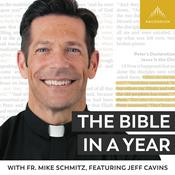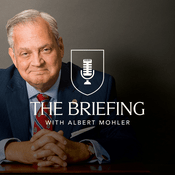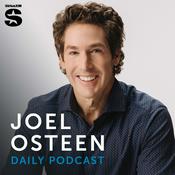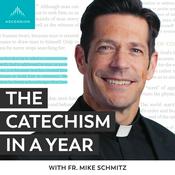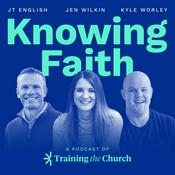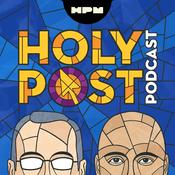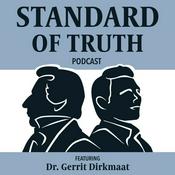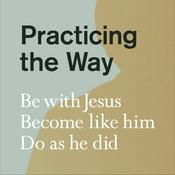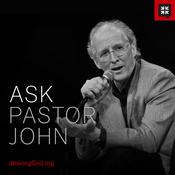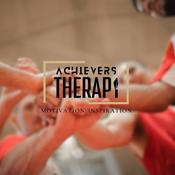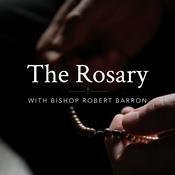360 episodes
- Frank Schwartz is a husband—for nearly 25 years—and a father of three girls. He has served in several bishoprics, elders quorum presidencies, high councils, high priest group leaderships and Young Men presidencies (back when those were a thing), and a variety of other callings over the years.
Frank did undergraduate and graduate work in Psychology and worked in television before starting a small, boutique, corporate communications firm. Most recently he has worked for a client in the healthcare payments space. Frank joined F3 in 2014 and has served in the national leadership in different capacities prior to taking over as Nant’an/CEO in 2024.
Links
Fellowshipping Men in Elders Quorum | An Interview with Frank Schwartz
Watch the video and share your thoughts in the Zion Lab community
Transcript available with the video in the Zion Lab community
Highlights
00:02:40 – Discussion on Elders Quorum Engagement
00:03:01 – Personal Experience with F3 and Transformation
00:05:11 – The Importance of Community for Men
00:09:18 – The Need for Transformational Experiences
00:10:08 – Finding Truth and Community
00:12:13 – The Simplicity of Gathering Men
00:14:02 – The Role of Food in Building Brotherhood
00:15:32 – The Power of Gathering in Elders Quorum
00:18:00 – Authenticity in Church Leadership
00:20:56 – Creating Comfortable Spaces for Discussion
00:22:04 – Personal Transformation After Warrior Heart Bootcamp
00:23:24 – The Quest for Personal Purpose
00:25:05 – Shifting Perspectives on Relationships
00:30:00 – The Broader Plan and God’s Purpose
00:33:55 – Limiting Perspectives and Personal Growth
00:37:40 – The Journey of Self-Discovery and Adventure
Frank and Kurt discuss approaches to engaging men in elders quorum and fostering brotherhood within the Latter-day Saint community. They explore the importance of transformational experiences and how simple gatherings can lead to deeper connections among men.
Key Insights
Transformational Experiences: Men often seek meaningful experiences that can lead to personal growth and connection. Frank shares how participating in F3 and Warrior Heart boot camps has profoundly changed his perspective on leadership and relationships.
Gathering for Brotherhood: The act of gathering, whether for workouts or casual meet-ups, is crucial for building community. Frank emphasizes that men need spaces where they can connect and share their experiences authentically.
Authenticity in Leadership: Leaders should prioritize creating environments where vulnerability is encouraged. This can be achieved by moving away from rigid lesson structures and focusing on genuine interactions.
Shifting Perspectives: Frank discusses the importance of recognizing limiting beliefs and perspectives that can hinder personal growth. Leaders should help others see beyond their current views to embrace a broader understanding of their purpose.
Simplicity in Engagement: Simple gatherings, such as meeting for hot dogs or casual discussions, can effectively draw men together and foster meaningful conversations, making it easier for them to engage with one another.
Leadership Applications
Focus on Gathering: Latter-day Saint leaders can prioritize creating informal gatherings that encourage connection among men, such as breakfast meetings or service projects, rather than strictly adhering to lesson plans.
Encourage Vulnerability: Leaders should model vulnerability and openness in their interactions, creating a safe space for others to share their thoughts and feelings, which can lead to stronger bonds within the group.
Challenge Limiting Beliefs: Leaders can facilitate discussions that help members identify and overcome limiting beliefs, encouraging them to explore their divine potential and purpose within the community.
The award-winning Leading Saints Podcast is one of the top independent Latter-day Saints podcasts as part of nonprofit Leading Saints’ mission to help Latter-day Saints be better prepared to lead. Find Leadership Tools, Courses, and Community for Latter-day Saint leaders in the Zion Lab community. Learn more and listen to any of the past episodes for free at LeadingSaints.org.
Past guests include Emily Belle Freeman, David Butler, Hank Smith, John Bytheway, Reyna and Elena Aburto, Liz Wiseman, Stephen M. R. Covey, Benjamin Hardy, Elder Alvin F. Meredith III, Julie Beck, Brad Wilcox, Jody Moore, Tony Overbay, John H. Groberg, Elaine Dalton, Tad R. Callister, Lynn G. Robbins, J. Devn Cornish, Bonnie Oscarson, Dennis B. Neuenschwander, Kirby Heyborne, Taysom Hill, Coaches Jennifer Rockwood and Brandon Doman, Anthony Sweat, John Hilton III, Barbara Morgan Gardner, Blair Hodges, Whitney Johnson, Ryan Gottfredson, Greg McKeown, Ganel-Lyn Condie, Michael Goodman, Wendy Ulrich, Richard Ostler, and many more in over 800 episodes.
Discover podcasts, articles, virtual conferences, and live events related to callings such as the bishopric, Relief Society, elders quorum, Primary, youth leadership, stake leadership, ward mission, ward council, young adults, ministering, and teaching. 10 Lesser-Known Ideas to Help Ward Members Connect with Jesus Christ | An Interview with Eric Richards
1/29/2026 | 1h 6 mins.Brother Eric Richards teaches Institute and Seminary in the Utah North Area, is a member of the Veritas society, a contributing author for the Patheos project, and a member of the International Writers and Editors Association. He has served in several Bishoprics, twice on High Councils, in the Stake Presidency, and now serves as a Bishop. For five years, Brother Richards and his team wrote the Online Seminary Curriculum. He presents at BYU and BYU-Idaho Education Week and is the author of Preparing for the Second Coming, Come Follow Me: Words of the Week, and was a contributing author for Deseret Book’s “Hear Him” project. He’s a certified Neuroscience Coach, and a great pickleball player in his free time.
Brother Richards grew up attending the Mountain View Baptist Church in San Diego before missionaries baptized him and his mom. He served a mission in Honduras, and his son later served in the same mission. He first moved to Utah after meeting his future wife at EFY, and taught Seminary and played water polo and volleyball for Utah State University. They have been married for 27 years. Most of all, he loves teaching and being with valiant Christians around the world.
Links
Preparing for the Second Coming
Come Follow Me: Words of the Week
Watch the video and share your thoughts in the Zion Lab community
Transcript available with the video in the Zion Lab community
Highlights
How can we lead in a way that connects members deeply to Jesus Christ? This conversation moves beyond administrative duties to explore practical frameworks for empowering members, delivering difficult counsel, and fostering a revelation-driven ward culture.
00:02:37 – Eric Richards’s Background and Experience
00:06:05 – Core Messages and Focus on Jesus Christ
00:07:42 – Approaching Leadership and Interviews
00:12:21 – The Importance of the Bishop’s Helpline
00:13:05 – Interview Techniques for Revelation
00:20:03 – The Role of Hope in Leadership
00:24:11 – Addressing Pornography in Ministering Interviews
00:30:51 – Supporting Speakers and Teachers in Sacrament Meetings
00:35:07 – Encouraging Discussion in Sunday School
00:39:26 – Inspired Counsel on Callings
00:45:12 – The Bishop’s Prayer List and Personal Ministry
00:46:33 – Ministering Interviews and Strengthening Faith
Key Insights
Connecting to Christ: All leadership efforts should ultimately prioritize helping individuals develop a personal relationship with the Savior rather than simply maintaining organizational functions.
Four Levels of Problem Solving: Leaders can empower members by identifying their current “level” of problem-solving: Level 1 (bringing a completed solution), Level 2 (proposing options), Level 3 (sharing findings/research), or Level 4 (simply asking for the answer).
The “Hot Sauce” Technique: Delivering difficult correction is most effective when used as a “compliment sandwich,” where hard truths are encased in genuine love to ensure the counsel is “metabolized” rather than rejected.
Facilitating Personal Revelation: Leaders should serve as a “Sherpa” or “guide on the side,” asking questions that invite the member to receive their own answers from the Spirit rather than providing them directly.
Wellness Baselines: Richards emphasizes checking a member’s physical (sleep, diet, exercise) and spiritual (prayer, scripture, temple) “baselines” to address holistic needs before tackling complex emotional or behavioral issues.
Heart-Led Vulnerability: To create safety, leaders should model vulnerability in sacrament meetings and classes, prioritizing personal, “heart-led” experiences over purely informational “head-led” teaching.
Leadership Applications
Member Empowerment: Instead of solving every problem, a leader can ask a member where they are on the 1–4 problem-solving scale, encouraging them to find and present their own solutions for the leader’s approval.
Ward Council Dynamics: Councils are most effective when members “check their ego” and evaluate every proposal through “three hats”: their perspective as an individual, as a friend/neighbor, and through their specific stewardship.
Joyful Ward Culture: Leaders can foster a “Church of Joy” by normalizing post-meeting interactions and using specific roles, such as “stenographers” to document the ward’s spiritual history and community connections.
The award-winning Leading Saints Podcast is one of the top independent Latter-day Saints podcasts as part of nonprofit Leading Saints’ mission to help Latter-day Saints be better prepared to lead. Find Leadership Tools, Courses, and Community for Latter-day Saint leaders in the Zion Lab community. Learn more and listen to any of the past episodes for free at LeadingSaints.org.
Past guests include Emily Belle Freeman, David Butler, Hank Smith, John Bytheway, Reyna and Elena Aburto, Liz Wiseman, Stephen M. R. Covey, Benjamin Hardy, Elder Alvin F. Meredith III, Julie Beck, Brad Wilcox, Jody Moore, Tony Overbay, John H. Groberg, Elaine Dalton, Tad R. Callister, Lynn G. Robbins, J. Devn Cornish, Bonnie Oscarson, Dennis B. Neuenschwander, Kirby Heyborne, Taysom Hill, Coaches Jennifer Rockwood and Brandon Doman, Anthony Sweat, John Hilton III, Barbara Morgan Gardner, Blair Hodges, Whitney Johnson, Ryan Gottfredson, Greg McKeown, Ganel-Lyn Condie, Michael Goodman, Wendy Ulrich, Richard Ostler, and many more in over 800 episodes.
Discover podcasts, articles, virtual conferences, and live events related to callings such as the bishopric, Relief Society, elders quorum, Primary, youth leadership, stake leadership, ward mission, ward council, young adults, ministering, and teaching.Why Every Leader Needs to Understand Justification & Sanctification | An Interview with Stephan Taeger
1/28/2026 | 1h 2 mins.Stephan Taeger is an assistant professor in Ancient Scripture at Brigham Young University. He received a PhD from BYU in Instructional Design and Technology. Stephan’s research focuses on Homiletics (the study of preaching), narrative instruction, and ancient scripture. He is also an author and co-host of the RVVL podcast with David Butler.
Links
Y Religion: Justification by Faith
The Science of Speaking in Sacrament Meeting | An Interview with Stephan Taeger
President Spencer W. Kimball: “Jesus the Perfect Leader”
Sermons and talks by Timothy Keller on YouTube
Stephan Taeger: “Declared Guiltless: Justification by Faith in the Latter-day Saint Classroom”
Toxic Perfectionism at Church | An Interview with Justin Dyer
Justification: God’s Plan, Paul’s Vision
N.T. Wright on YouTube
Weakness Is Not Sin: The Liberating Distinction That Awakens Our Strengths
RVVL Podcast
StephanTaeger.com
Tim Keller: Sin as Self-Deceit
Watch the video and share your thoughts in the Zion Lab community
Transcript available with the video in the Zion Lab community
Highlights
00:04:00 – Stephan Taeger’s Background and Teaching Focus
00:05:00 – Influence of Tim Keller on Understanding Justification
00:06:00 – Justification Explained
00:09:00 – The Relationship Between Justification and Works
00:10:30 – Understanding the Role of Covenants
00:11:30 – The Importance of Faithfulness
00:12:30 – The Marriage Analogy for Justification
00:13:30 – The Role of the Sacrament in Justification
00:14:30 – Defining Sanctification
00:15:30 – The Process of Becoming More Like God
00:17:00 – The Role of Obedience in Response to Grace
00:18:00 – Addressing Perfectionism in Leadership
00:19:00 – The Impact of Sin on Community
00:20:00 – The Role of Bishops in Restricting Ordinances
00:22:00 – Understanding Restrictions as Support
00:23:00 – The Nature of Punishment vs. Guidance
00:24:00 – Mental Health and Perfectionism
00:25:00 – Addressing Sexual Development and Sin
00:26:00 – The Importance of Striving for Sanctification
00:27:00 – The Role of the Bishop in Mental Health
00:28:00 – The Challenge of Perfectionism
00:29:00 – The Concept of Forgiveness
00:30:00 – The Nature of Grace in the Gospel
Key Insights
Justification Defined: Justification is described as being pardoned from sin and declared guiltless, occurring when individuals enter a covenant relationship with God through faith, repentance, baptism, and receiving the Holy Ghost.
Sanctification Explained: Sanctification is the ongoing process of becoming more like God, involving a change in one’s nature, thoughts, and desires over time, as individuals strive to live in accordance with their covenants.
The Role of Grace: Grace is central to understanding both justification and sanctification. It emphasizes that salvation is a gift from God, not solely based on individual works, and that individuals can have confidence in their justified state.
Addressing Perfectionism: Many Latter-day Saints struggle with perfectionism, often feeling unworthy despite understanding the doctrine. The conversation highlights the importance of recognizing one’s worth as inherent and not solely based on actions.
Mental Health Considerations: The discussion touches on the intersection of mental health and religious beliefs, particularly regarding OCD and scrupulosity, emphasizing the need for compassion and understanding in addressing these issues.
Leadership Applications
Fostering a Culture of Grace: Leaders can create an environment where members feel secure in their justified state, encouraging them to engage in the gospel without the burden of shame or guilt.
Understanding Individual Needs: By recognizing that unmet needs may drive certain behaviors, leaders can approach members with empathy, focusing on support rather than judgment.
Promoting Continuous Growth: Leaders should emphasize the importance of striving for sanctification, framing commandments and ordinances as opportunities for growth rather than as mere obligations, thus inspiring members to engage more fully in their spiritual journeys.
The award-winning Leading Saints Podcast is one of the top independent Latter-day Saints podcasts as part of nonprofit Leading Saints’ mission to help Latter-day Saints be better prepared to lead. Find Leadership Tools, Courses, and Community for Latter-day Saint leaders in the Zion Lab community. Learn more and listen to any of the past episodes for free at LeadingSaints.org.
Past guests include Emily Belle Freeman, David Butler, Hank Smith, John Bytheway, Reyna and Elena Aburto, Liz Wiseman, Stephen M. R. Covey, Benjamin Hardy, Elder Alvin F. Meredith III, Julie Beck, Brad Wilcox, Jody Moore, Tony Overbay, John H. Groberg, Elaine Dalton, Tad R. Callister, Lynn G. Robbins, J. Devn Cornish, Bonnie Oscarson, Dennis B. Neuenschwander, Kirby Heyborne, Taysom Hill, Coaches Jennifer Rockwood and Brandon Doman, Anthony Sweat, John Hilton III, Barbara Morgan Gardner, Blair Hodges, Whitney Johnson, Ryan Gottfredson, Greg McKeown, Ganel-Lyn Condie, Michael Goodman, Wendy Ulrich, Richard Ostler, and many more in over 800 episodes.
Discover podcasts, articles, virtual conferences, and live events related to callings such as the bishopric, Relief Society, elders quorum, Primary, youth leadership, stake leadership, ward mission, ward council, young adults, ministering, and teaching.This is a rebroadcast of a podcast episode from Teaching Restored, a podcast exploring the how of teaching the restored gospel of Jesus Christ to bring others unto Him, helping gospel teachers become more confident, converted, and consecrated. Hosts Kevin Jones and Julie Hillyard are both former guests on the Leading Saints Podcast and you can join Kevin for further teaching-related discussion in Zion Lab.
Links
Teaching Restored
Teaching Restored on YouTube @teachingrestored
Teaching Sunday School with Questions | An Interview with Kevin Jones
Stimulating Sunday School Discussion… But Not Too Much | An Interview with Julie Hillyard
Watch the video and share your thoughts in the Zion Lab community
Transcript available with the video in the Zion Lab community
Highlights
Kevin and Julie explore the concept of “flipped” learning as a model for “home-centered, church-supported” gospel study. They discuss transitioning from a lecture-based church experience to a “laboratory” environment where members act as a council to solve problems and apply doctrines learned at home.
Key Insights
The Flipped Classroom Model: In a traditional setting, teachers lecture and students do “homework” alone; in a flipped model, students learn the material at home and use class time to work through practical applications with the teacher’s help.
Defining Scriptural Understanding: Citing Elder Bednar, Kevin notes that scriptural “understanding” is not merely mental comprehension, but occurs when the heart confirms what the mind has learned.
The “Preparer” as the Primary Learner: The person who prepares a talk or lesson historically learns the most. The goal of a flipped church is to elevate every member to the status of a “preparer” before they arrive at Sunday meetings.
Accountability Through System Changes: To motivate home study, Kevin suggests “blowing up” the traditional lecture system. If members know they will be required to participate in a solution-based council rather than listen to a lecture, they are more likely to engage with the materials at home.
Utilizing Existing Tools: Julie highlights that the Come, Follow Me manuals and Gospel Library app already provide the necessary “lab” prompts—such as writing a eulogy for Joseph Smith—but these are often ignored in favor of passive reading.
Leadership Applications
Transitioning from Teacher to Moderator: Leaders can “release” traditional teachers and instead call “discussion heads” or moderators. This shifts the burden of learning onto the quorum or class members and prevents “spiritual engines” from turning off during a lecture.
Implementing Solution-Based Councils: Instead of sharing “happy thoughts,” leaders should present specific ward or family conundrums—such as helping elderly members attend the temple—and ask the council to generate actionable solutions.
Closing the Feedback Loop: When a council generates a solution, leaders must take those ideas to the Ward Council or Bishopric and report back to the members. This demonstrates that their participation has a direct impact on the ward’s operation.
00:04:22 – Introduction to Flipped School Concept
00:06:25 – New Year’s Resolutions and Teaching Goals
00:07:07 – Understanding Flipped School Model
00:09:05 – Home-Centered, Church-Supported Learning
00:10:24 – The Role of Preparation in Learning
00:12:01 – The Importance of Family Engagement
00:13:05 – Elder Oaks on Family Togetherness
00:17:02 – The Challenge of Utilizing Extra Time
00:19:04 – Elder Bednar on Understanding and Revelation
00:21:44 – The Need for Personal Preparation
00:24:51 – Tools for Effective Gospel Study
00:28:32 – Practical Application of Come Follow Me
00:30:32 – The Role of Motivation in Learning
00:32:08 – Innovative Elders Quorum Model
00:36:05 – Benefits of Council-Based Learning
00:40:34 – Youth Engagement in Problem Solving
00:43:00 – The Importance of Practice in Councils
00:46:34 – Reframing Youth Teaching Opportunities
The award-winning Leading Saints Podcast is one of the top independent Latter-day Saints podcasts as part of nonprofit Leading Saints’ mission to help Latter-day Saints be better prepared to lead. Find Leadership Tools, Courses, and Community for Latter-day Saint leaders in the Zion Lab community. Learn more and listen to any of the past episodes for free at LeadingSaints.org.
Past guests include Emily Belle Freeman, David Butler, Hank Smith, John Bytheway, Reyna and Elena Aburto, Liz Wiseman, Stephen M. R. Covey, Benjamin Hardy, Elder Alvin F. Meredith III, Julie Beck, Brad Wilcox, Jody Moore, Tony Overbay, John H. Groberg, Elaine Dalton, Tad R. Callister, Lynn G. Robbins, J. Devn Cornish, Bonnie Oscarson, Dennis B. Neuenschwander, Kirby Heyborne, Taysom Hill, Coaches Jennifer Rockwood and Brandon Doman, Anthony Sweat, John Hilton III, Barbara Morgan Gardner, Blair Hodges, Whitney Johnson, Ryan Gottfredson, Greg McKeown, Ganel-Lyn Condie, Michael Goodman, Wendy Ulrich, Richard Ostler, and many more in over 800 episodes.
Discover podcasts, articles, virtual conferences, and live events related to callings such as the bishopric, Relief Society, elders quorum, Primary, youth leadership, stake leadership, ward mission, ward council, young adults, ministering, and teaching.Ernesto Quintanilla is the co-host (with his wife Nancy) and driving force behind Santos en Liderazgo, the official Spanish-language expansion of the Leading Saints podcast. A dedicated leader and communicator, Ernesto is passionate about helping Spanish-speaking Latter-day Saints enhance their leadership skills and better serve their communities.
By interviewing experienced leaders and sharing research-backed principles, Ernesto bridges the gap between traditional leadership concepts and the unique cultural nuances of Latino congregations. His work focuses on empowering local leaders—from Bishops and Relief Society presidents to youth advisors—with the tools and inspiration needed to lead with Christlike love and administrative excellence.
Links
Santos en Liderazgo on YouTube
Santos en Liderazgo in Zion Lab
Transcript available with the video in the Zion Lab community
Watch the video and share your thoughts in the Zion Lab community
Overview
In this episode, Kurt Francom interviews Ernesto Quintanilla regarding the launch of Santos en Liderazgo, the Spanish-language expansion of the Leading Saints podcast. The conversation focuses on the unique leadership dynamics within the Latino Latter-day Saint community and the need for culturally relevant resources to support local leaders worldwide.
Key Insights
Cultural Warmth in Leadership: A recurring theme is the Latino culture’s emphasis on deep, warm, and personal relationships. Ernesto highlights how leaders often build connections through physical affection (hugs) and informal social gatherings, which fosters a strong sense of community and trust.
The Pioneer Experience: Many Latino leaders are first-generation members or recent converts. Ernesto notes that while they may lack deep historical knowledge of church programs, they compensate with extraordinary faith and a reliance on the Spirit to guide their actions and words.
Cultural Adaptation and Immersion: Navigating the intersection of Latino and American church cultures requires proactive effort. Ernesto suggests that “immersion” is the most effective way for different groups to understand each other, recommending that leaders simply “show up” and participate in each other’s social and religious activities.
Unique Community Initiatives: The discussion highlights innovative grassroots programs, such as a missionary preparation initiative in Peru that provides medical and dental services to prospective missionaries, which eventually became an area-wide program.
Mental Health and Belonging: Leadership in the Latino community often involves addressing the unique mental health challenges of immigrants who may feel they “don’t belong” in their new country nor their country of origin.
Leadership Applications
Prioritize Relationship over Program: Leaders can improve ward unity by shifting focus from administrative tasks to “warm” social interactions. Ernesto emphasizes that simple gestures, like sharing food or offering a sincere greeting, can bridge cultural gaps more effectively than formal training.
Empower New Converts: Recognizing that many leaders are “pioneers,” established leaders should provide patient coaching while honoring the fresh spiritual energy and faith-based initiative these members bring to their callings.
Highlights
Coming soon
The award-winning Leading Saints Podcast is one of the top independent Latter-day Saints podcasts as part of nonprofit Leading Saints’ mission to help Latter-day Saints be better prepared to lead. Find Leadership Tools, Courses, and Community for Latter-day Saint leaders in the Zion Lab community. Learn more and listen to any of the past episodes for free at LeadingSaints.org.
Past guests include Emily Belle Freeman, David Butler, Hank Smith, John Bytheway, Reyna and Elena Aburto, Liz Wiseman, Stephen M. R. Covey, Benjamin Hardy, Elder Alvin F. Meredith III, Julie Beck, Brad Wilcox, Jody Moore, Tony Overbay, John H. Groberg, Elaine Dalton, Tad R. Callister, Lynn G. Robbins, J. Devn Cornish, Bonnie Oscarson, Dennis B. Neuenschwander, Kirby Heyborne, Taysom Hill, Coaches Jennifer Rockwood and Brandon Doman, Anthony Sweat, John Hilton III, Barbara Morgan Gardner, Blair Hodges, Whitney Johnson, Ryan Gottfredson, Greg McKeown, Ganel-Lyn Condie, Michael Goodman, Wendy Ulrich, Richard Ostler, and many more in over 800 episodes.
Discover podcasts, articles, virtual conferences, and live events related to callings such as the bishopric, Relief Society, elders quorum, Primary, youth leadership, stake leadership, ward mission, ward council, young adults, ministering, and teaching.More Religion & Spirituality podcasts
Trending Religion & Spirituality podcasts
About Leading Saints Podcast
Helping Latter-day Saints be Better Prepared to LeadPodcast websiteListen to Leading Saints Podcast, The Bible in a Year (with Fr. Mike Schmitz) and many other podcasts from around the world with the radio.net app

Get the free radio.net app
- Stations and podcasts to bookmark
- Stream via Wi-Fi or Bluetooth
- Supports Carplay & Android Auto
- Many other app features
Get the free radio.net app
- Stations and podcasts to bookmark
- Stream via Wi-Fi or Bluetooth
- Supports Carplay & Android Auto
- Many other app features


Leading Saints Podcast
Scan code,
download the app,
start listening.Leading Saints Podcast: Podcasts in Family


